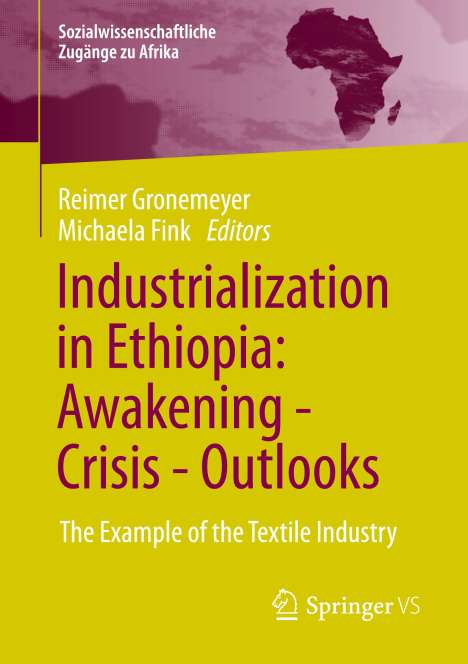Industrialization in Ethiopia: Awakening - Crisis - Outlooks, Kartoniert / Broschiert
Industrialization in Ethiopia: Awakening - Crisis - Outlooks
- The Example of the Textile Industry
- Publisher:
- Reimer Gronemeyer, Michaela Fink
- Publisher:
- Springer Gabler, 11/2023
- Binding:
- Kartoniert / Broschiert, Paperback
- Language:
- Englisch
- ISBN-13:
- 9783658417932
- Item number:
- 11697719
- Volume:
- 280 Pages
- Weight:
- 366 g
- Format:
- 210 x 148 mm
- Thickness:
- 16 mm
- Release date:
- 24.11.2023
- Note
-
Caution: Product is not in German language
Blurb
Ethiopia, though remaining one of the least urbanised countries in the world, has taken impressive actions to transform the state into a more industrialized nation. Several industrial parks have been built in recent years throughout the whole country. The textile sector is one of these sectors. The textile industry is expected to provide employment for hundreds of thousands and thus improve people's living conditions and contribute to the development of the country. Major reason for asian investors to shift their focus to Ethiopia are extremely low wages and the lower production costs involved. The Ethiopian textile industry has to deal with high rates of labor turnover and absenteeism. From the perspective of the mostly international managers the reason for turnover and absenteeism is often attributed to the 'mindset' of the predominantly female workforce. A research project financed by the German Bundesministerium für wirtschaftliche Zusammenarbeit und Entwicklung is looking at reasons and possible measures to solve this problem. Results of this project (conducted at the University of Giessen by Michaela Fink and Reimer Gronemeyer together with Ethiopian colleagues are presented in this book. Experts from Ethiopia and Germany are presenting the history of the textile industry in Ethiopia and the coming development. All this is framed by the discussion of present crisis - Covid-19; the war - in Ethiopia).
Biography (Reimer Gronemeyer)
Prof. Dr. Dr. Reimer Gronemeyer, geb. 1939, Studium der Theologie in Hamburg, Heidelberg und Edinburgh, dann lutherischer Pfarrer in Hamburg ist seit 1975 Professor für Soziologie an der Universität Gießen. Er ist Mitleiter des Graduiertenkollegs 'Palliative Care' am IFF Wien, Mitglied im wissenschaftlichen Beirat der Bundesarbeitsgemeinschaft Hospiz und Mitglied der Arbeitsgruppe Sterbebegleitung im Hessischen Sozialministerium.
